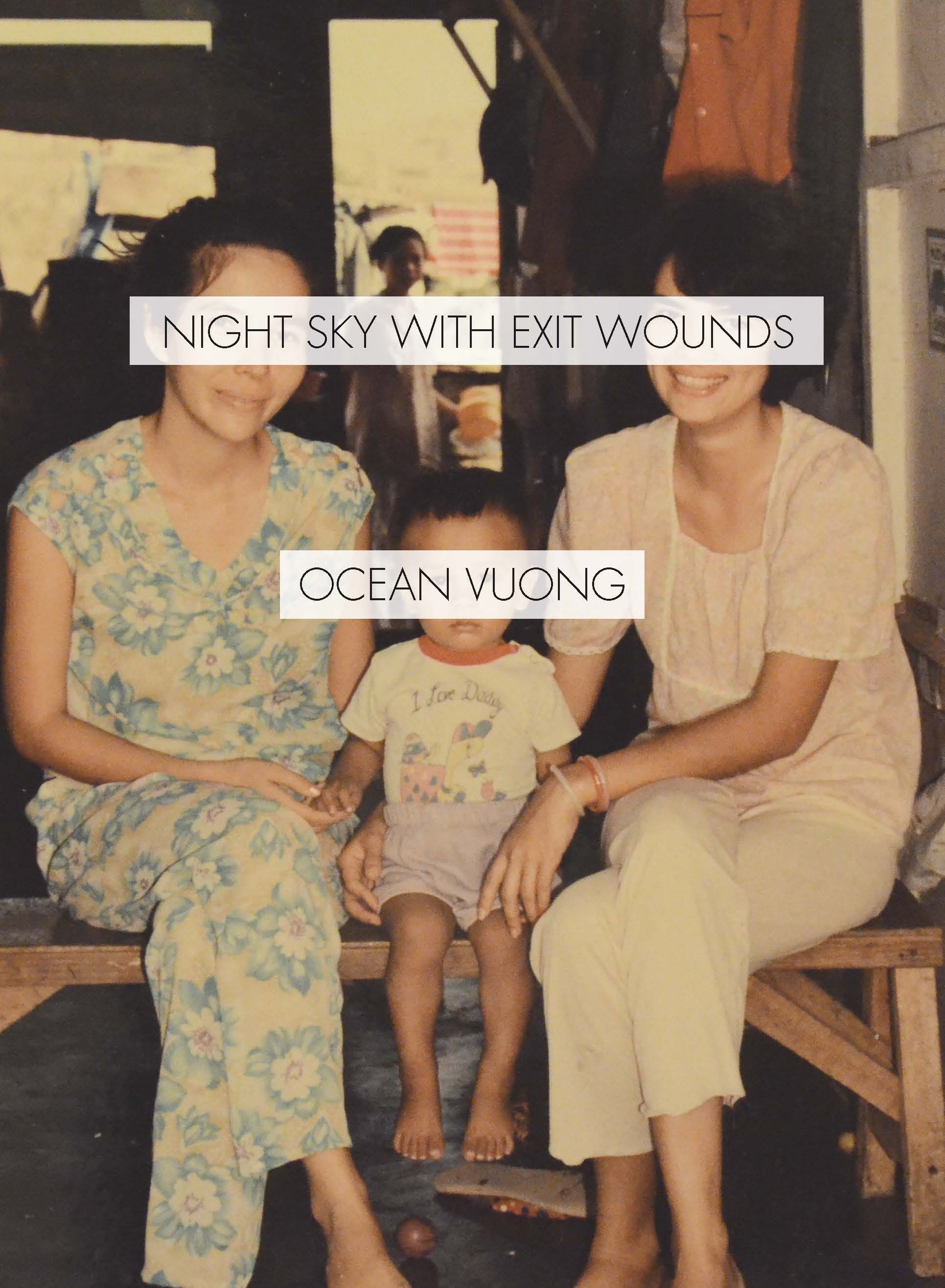What do you think?
Rate this book


89 pages, Paperback
First published April 5, 2016
ŌĆ�His lines are both long and short, his pose narrative and lyric, his diction formal and insouciant. From the outside, Vuong has fashioned a poetry of inclusion.ŌĆ�
"How a horse will run until it breaks
into weather -- into wind. How like
the wind, they will see
him. They will see him
clearest
when the city burns."
"Snow scraping against the window. Snow shredded
with gunfire. Red sky.
Snow on the tanks rolling over the city walls.
A helicopter lifting the living just out of reach.
The city so white it is ready for ink."
"He laughs despite knowing he has ruined every beautiful thing just to prove beauty cannot change him."
"To love another
man -- is to leave
no one behind
to forgive me.
I want to leave
no one behind.
To keep
& be kept.
The way a field turns its secrets
into peonies.
The way light
keeps its shadow
by swallowing it."
"Don't laugh. Just tell me the story / again, / of the sparrows who flew from falling Rome, / their blazed wings. / How ruin nested inside each thimbled throat / & made it sing"
ŌĆ£Dearest Father, forgive me for I have seen.ŌĆ�
Ō£� fav poems:
¤ö╣ a little closer to the edge
¤īŖ immigrant hiabun
¤īĆ headfirst
¤”ŗ self-portrait as exit wounds
¤¬ü notebook fragments
ŌĆöHe laughs despite knowing he has ruined every beautiful thing just to prove beauty cannot change him.
Untitled (Blue, Green, and Brown, 1952)It was the phrase How we live like water: wetting a new tongue with no telling what we've been through. That phrase stopped me.
The TV said the planes have hit the buildings.
& I said Yes because you asked me
to stay. Maybe we pray on our knees because god
only listens when we're this close
to the devil. There is so much I want to tell you.
How my greatest accolade was to walk
across the Brooklyn Bridge
& not think of flight. How we live like water: wetting
a new tongue with no telling
what we've been through. They say the sky is blue
but I know it's black seen through too much distance.
You will always remember what you were doing
when it hurts the most. There is so much
I need to tell you--but I only earned
one life & I took nothing. Nothing. Like a pair of teeth
at the end. The TV kept saying The planes...
The planes... & I stood waiting in the room
made of broken mockingbirds. Their wings throbbing
into four blurred walls. & you were there.
You were the window.
ŌĆ£IŌĆÖm writing a novel composed of woven inter-genre fragments. To me, a book made entirely out of unbridged fractures feels most faithful to the physical and psychological displacement I experience as a human being. IŌĆÖm interested in a novel that consciously rejects the notion that something has to be whole in order to tell a complete story. I also want to interrogate the arbitrary measurements of a ŌĆ£successfulŌĆ� literary work, particularly as it relates to canonical Western values. For example, we traditionally privilege congruency and balance in fiction, we want our themes linked, our conflicts ŌĆ£resolved,ŌĆ� and our plots ŌĆ£ironed out.ŌĆ� But when one arrives at the page through colonized, plundered, and erased histories and diasporas, to write a smooth and cohesive novel is to ultimately write a lie.ŌĆ�╠²Vuong brings with him the possibility of a vision that is articulate enough to share, brave enough to bolster. It's a kind of blessing, a grace note we don't really deserve, his voice.
"Only a mother can walk with the weight of a second beating heart" Pg. 20